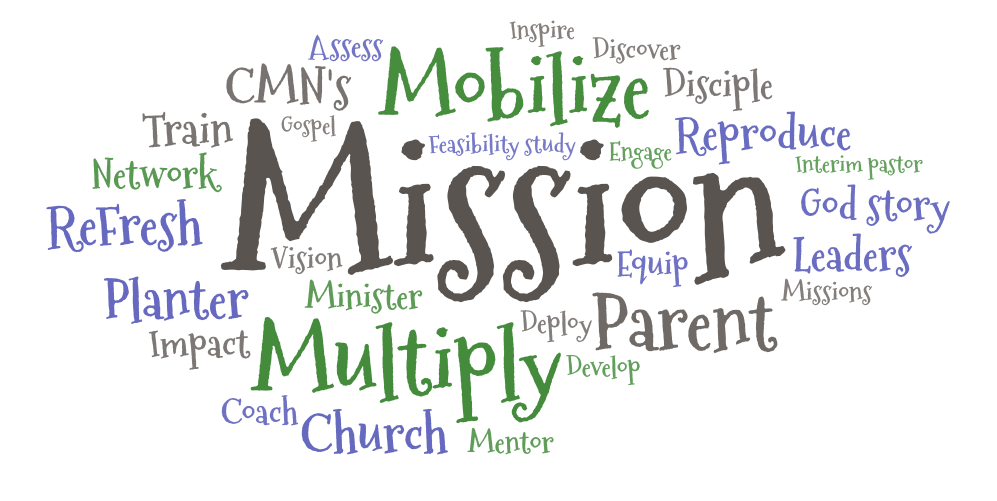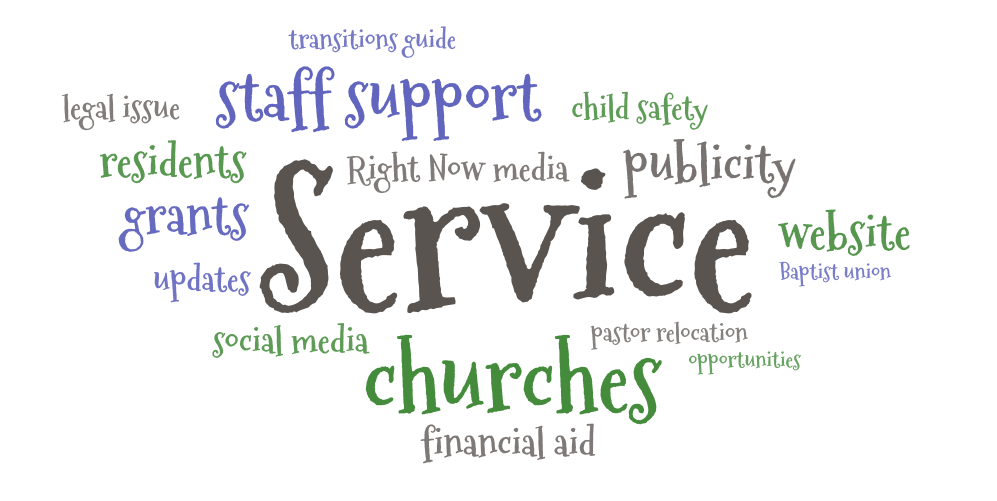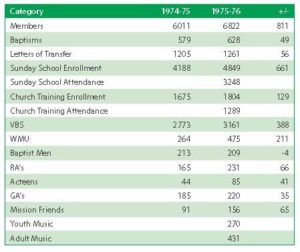
by Tim Faulkner
General Secretary
Looking Back to Look Forward
Psalm 131 A song of ascents, by David.
O Lord, my heart is not proud,
nor do I have a haughty look.
I do not have great aspirations,
or concern myself with things that are beyond me.
Indeed, I have calmed and quieted myself
like a weaned child with its mother;
I am content like a young child.
O Israel, hope in the Lord
now and forevermore!
You and I are replaceable. The psalmist unveils a general principle — true then and still true today. The leaders, lay leaders, members, attenders, and myself, the general secretary of the International Baptist Convention, require a sober confidence (v. 3), the kind born out of humility.
David observes that a lack of humility shows up within a short time after one’s birth. The young child struggles with overconfidence, saying, “I can do it myself.” Compare this to the life of a growing disciple: we, too, are tempted to overestimate our contribution. However, God’s people have been on this journey long before us, and they will continue on when we are gone.
We are replaceable but at the same time, we are also resourceful. David looks at a child a second time and sees another struggle — selfish dependence. A child looks to mom for food. This is not an expression of the joy of simply being in her presence. We also have that tendency. God does not discourage us from insistently requesting assistance (compare Luke 18:1-8) but since we have God Himself, we should be able to say, “I am content” (v. 2).
David’s song of confidence is one of the songs of ascents. It is part of the hymnal used multiple times a year by those returning to Jerusalem for celebration. This hymn is not one of the early ones. The climb upwards has reached the 12th day and the destination is only a few days off. This traveler turns to Psalm 131 — to a vision of humble confidence that is neither premature arrogance nor selfish dependency. This pilgrim is not childish, but childlike: “Hope in the Lord!” (v. 3).
With the confidence provided by resting in what God will continue to do, let’s take a moment to look back and then to look ahead. As a convention we have a lot for which to be grateful. We also have reasons for hope.
Looking Back: A Trustworthy God
In preparation for this year’s Annual Convention Meeting theme of “Celebrating Our Baptist Heritage,” I have been reading the books of reports since the beginning of our convention. Today we are a family of 60 churches in 25 countries. This is a big jump from 1958 when twin brothers returned to Germany to begin work with American military families stationed there. By 1963, God added. The two churches in Wiesbaden and Frankfurt increased to more than 30 churches in five European countries.
More and more people of the world are finding a home in IBC churches. Today, on any given Sunday, around 8,000 people from 144 nationalities gather to worship and receive encouragement from God’s Word through the English language. Since the 60s, name changes trace the geographical expansion. The Association of Baptists in Continental Europe became the European Baptist Convention. We were called the EBC for approximately 20 years. The switch to the International Baptist Convention in 2003 signaled expansion beyond Europe into new territories.
Recently a pastor spoke to me after completing some research in order to apply with an English-speaking international church. He told me, “In the Protestant denominations doing English-speaking work among internationals, no one is more connected than the IBC.”
The gratitude that we have for being a part of the IBC is worth repeating to our congregations, leaders, and the world at large. God has been faithful to His promises, His plan, and His people.
All of these benefits might be grouped under three categories:
- Mobilizing (Strengthening) and Multiplying Churches
- A Sense of Family Belonging
- Service to the Local Church
The three categories listed above are what emerged in answer to “Why does the IBC exist?” The Executive Leadership Team evaluated the activities of the IBC in connection with our mission, vision, and values. We asked ourselves if we were fulfilling our “why?” through an exercise called “fruit/function/form.”
As I begin my third year as General Secretary, I look back with many personal reasons to be grateful. It has already been a year since Jacki and I completed the B1 German language requirement. It has been 10 months since Covid restrictions lessened enough for us to confidently travel on a regular basis. Since I began this role, I have made 41 church “visits” — in person on a Sunday morning (most of them), for church retreats, or via Zoom.
Jacki and I made our first trip to IBC churches in Latin America stopping in Panama, Costa Rica, and Argentina. We attended the Ministry Leadership Conferences in both Buenos Aires and Dubrovnik. We were able to join the Church Multiplication Leadership Team for a meeting in Berlin. I have represented the IBC at meetings of the European Baptist Federation, EBM International, and the German Baptist Union. I met with the board of the International Baptist Church Ministries, both online and in person for their annual meeting. Additionally, over a dozen times, Jacki and I have hosted pastors or church leaders and their families at our residence and office in Frankfurt. I have also appreciated many Zoom calls with pastors.
It is hard to narrow down the most satisfying aspects of my role. I have a front-row seat in watching God provide time and again. He sends interim or long-term pastors to churches that are without. Pastors and leaders receive encouragement from the God-sized results of their disciple-making efforts. God regularly sends people that need to find a church home, receive the gospel, grow and serve, and make disciples. God does not forget our churches!
Against this backdrop of change, we draw our gaze to the future.
Looking Ahead: A Trusting Church
Like the pilgrim that had already been hiking for 11 out of 14 days, many of us have been on the journey toward Christlikeness for quite some time. There are moments when the road is not easy to travel. Our confidence wanes, and our faithfulness wavers. The solution is neither false hope in ourselves nor desperately insisting on certain kinds of provisions from God. Rather we follow the psalmist’s counsel and commit our ways to the Lord.
I have one big objective for this year — engage with the pastors of the IBC in identifying convention-wide measures. As we think about reproducing churches, leaders, and congregations, how will we know if we are fulfilling our “why”?
The “why” has been described in our operations manual with “dream statements” which form our vision:
We envision a movement of global-minded churches that are reproducing healthy disciples, leaders, and congregations.
We dream of…
… stimulating churches toward mission advancement.
… helping churches to keep their focus on making and multiplying disciples.
… developing pastors and leaders in essential ministry skills.
… becoming a catalyst for strategic church-planting.
… nurturing a spirit of love that bridges cultures, nationalities, ethnicities, generations, politics, privilege, position, and religious backgrounds.
… fostering fellowship and connections among pastors and churches.
… supporting churches in times of need and transition.
Here we have broad brush strokes of what we desire to see in the IBC. This year we will flesh out these statements in ways that we can identify the progress that we are making. This is not something that we are unfamiliar with. It has been done throughout our history.
For example, at the 12th ACM, General Secretary John Merritt reported that memberships and baptisms in 19 of the churches had increased approximately 40% over the previous five years. The number of churches with an income in excess of $30,000 also increased from two to eight in that same time period. Totals of attendance and enrollment were reported for 12 different categories.
The reports at the 13th Annual Meeting of the IBC went further, showing the increase or decline between the 12th and 13th years in each of those categories. The following chart illustrates the gains and losses.
Numbers have traditionally been the measures used in evaluating progress. Numbers capture some of the results (decisions, baptisms, membership, giving) but stories are needed to measure gospel transformation. Although potentially harder to measure, we have the opportunity to produce a different blend of measures of progress. Some examples of measures for churches that are reproducing disciples, congregations, and leaders might include:
- Abiding and praying
- Training to shift church culture
- Creating relational environments
- Developing reproducible processes
- Defining the wins
- Describing a pathway to maturity
- Helping a disciple to assess his/her stage of growth
- Engaging in coaching/mentoring
- Considering becoming a parent church
Through conversations, panel discussions, correspondence, surveys, and more, I would like to hear from the leaders of our churches. I would like to know how they evaluate disciple-making progress and other kinds of results that flow out of their mission, vision, goals, and objectives.
I am not looking to increase the burden of gathering and reporting, but I do want to have something for us to look for as we celebrate what God has done and continues to do as we mobilize and multiply churches of disciples making disciples.
The psalmist reminds us that we are replaceable yet resourceful. God uses men and women like you and me to accomplish His work. We have a message of humble confidence. We can rest knowing that He is faithful.





